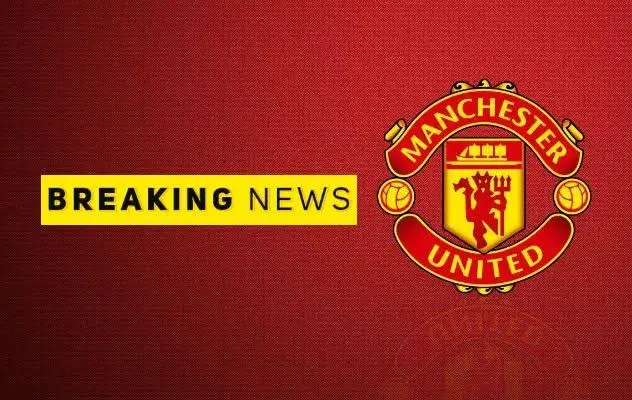Man United could miss the next season’s Champions League even if they win the Europa League, unless the club takes a major step before the final

Manchester United faces a complex situation regarding their participation in next season’s UEFA Champions League, even if they win the Europa League. Traditionally, winning the Europa League guarantees a club automatic entry into the Champions League group stage for the following season.
This rule remains in place for the 2024/25 and 2025/26 seasons, meaning that if Manchester United triumphs in the Europa League final against Tottenham Hotspur, they would normally secure a Champions League spot regardless of their poor domestic league performance[4][6].
However, the current circumstances involving Manchester United complicate this straightforward qualification path. The club is under scrutiny by UEFA due to ownership issues. INEOS, which took full control of Manchester United’s football operations last year, also retains a stake in OGC Nice, a French club currently competing for Champions League qualification through Ligue 1.
UEFA regulations prohibit a single owner from having controlling interests in two clubs participating in the same UEFA competition. Therefore, Manchester United’s participation in the Champions League next season would require explicit approval from UEFA[3].
This means that even if Manchester United wins the Europa League final, they are not guaranteed a place in the Champions League group stage unless UEFA grants permission. The approval hinges on the outcome of the Ligue 1 season and whether OGC Nice qualifies for the Champions League.
Should Nice secure a Champions League spot by finishing strongly in Ligue 1, UEFA may block Manchester United from entering the competition to avoid conflicts of interest[3].
Additionally, the Champions League format for the 2025/26 season involves 36 teams in the league phase, with 25 teams qualifying automatically through their domestic league positions and the Champions League and Europa League winners also guaranteed spots.
If the Europa League winner has already qualified via their league position, the spot is reallocated based on UEFA club coefficients and other criteria. Manchester United, however, cannot qualify through the Premier League this season due to their low standing, making the Europa League their only realistic route into the Champions League[1][5][6].
In summary, Manchester United’s potential qualification for next season’s Champions League by winning the Europa League is not assured. The club must navigate UEFA’s approval process related to ownership conflicts, which could prevent their participation despite on-field success.
This situation underscores the importance of the club taking significant administrative and structural steps before the Europa League final to secure their Champions League future. Without such measures, Manchester United risks missing out on Europe’s premier club competition even if they lift the Europa League trophy[3][6].
Here’s a refined and professional version of your report suitable for publication or formal use:
—
**Manchester United’s Champions League Hopes Complicated by UEFA Ownership Regulations**
*By \[Your Name], Football Correspondent*
**Manchester United** are facing an unusual and complex situation regarding their potential qualification for the **2024/25 UEFA Champions League**, even if they are victorious in the upcoming **Europa League final against Tottenham Hotspur** in Bilbao on **May 21**.
### **Europa League Win Typically Guarantees Champions League Entry**
Under standard UEFA regulations, the winner of the **UEFA Europa League** earns an **automatic place in the group stage** of the following season’s **Champions League**. This rule remains intact for both the **2024/25** and **2025/26** campaigns, meaning Manchester United would ordinarily qualify by lifting the Europa League trophy—especially crucial given their poor domestic form has ruled out qualification via the **Premier League**.
### **UEFA Ownership Scrutiny Casts Doubt on United’s Eligibility**
However, this seemingly clear path is now **clouded by ownership-related concerns**. **INEOS**, which took over full control of Manchester United’s football operations in 2023, also owns a **controlling stake in French club OGC Nice**, who are currently competing for a Champions League place via **Ligue 1**.
UEFA regulations prohibit **two clubs owned by the same entity or person** from participating in **the same European competition**, a measure designed to **safeguard sporting integrity**. As a result, Manchester United’s participation in next season’s Champions League is **not guaranteed**, even if they win the Europa League.
### **UEFA Approval Required**
If **OGC Nice** qualifies for the Champions League through their Ligue 1 finish, UEFA will have to determine which club—**Nice or Manchester United**—is permitted to compete. This decision hinges on UEFA’s **multi-club ownership rules** and **case-by-case assessments**.
Manchester United would therefore **require special approval** from UEFA to enter the Champions League if Nice also qualifies. Without that green light, United could be **excluded**, despite earning qualification through Europa League success.
### **Strategic Stakes Ahead of Final**
Given the **new Champions League format** launching in **2025/26**, which includes **36 teams in a league-phase system**, UEFA has maintained guarantees for both the **Champions League** and **Europa League winners** to qualify. However, if the Europa League winner has already secured a place via their domestic league, that slot is reallocated based on UEFA coefficients and association rankings.
Crucially, **Manchester United cannot qualify through the Premier League**, making **victory in the Europa League their only viable route** into next season’s Champions League. However, **ownership entanglements** place even that route in jeopardy.
### **What’s Next?**
Manchester United must now **engage with UEFA proactively** to resolve this matter before the Europa League final. That could involve restructuring ownership or ensuring clear operational independence between the two clubs.
Failure to do so could result in an extraordinary outcome: **Manchester United winning a major European trophy but being barred from the Champions League** due to administrative non-compliance rather than sporting merit.
This situation underscores the **critical importance of governance and compliance** in modern football—where off-field decisions can prove just as decisive as on-pitch performances.
—
Would you like an infographic or social media version summarizing this situation?








